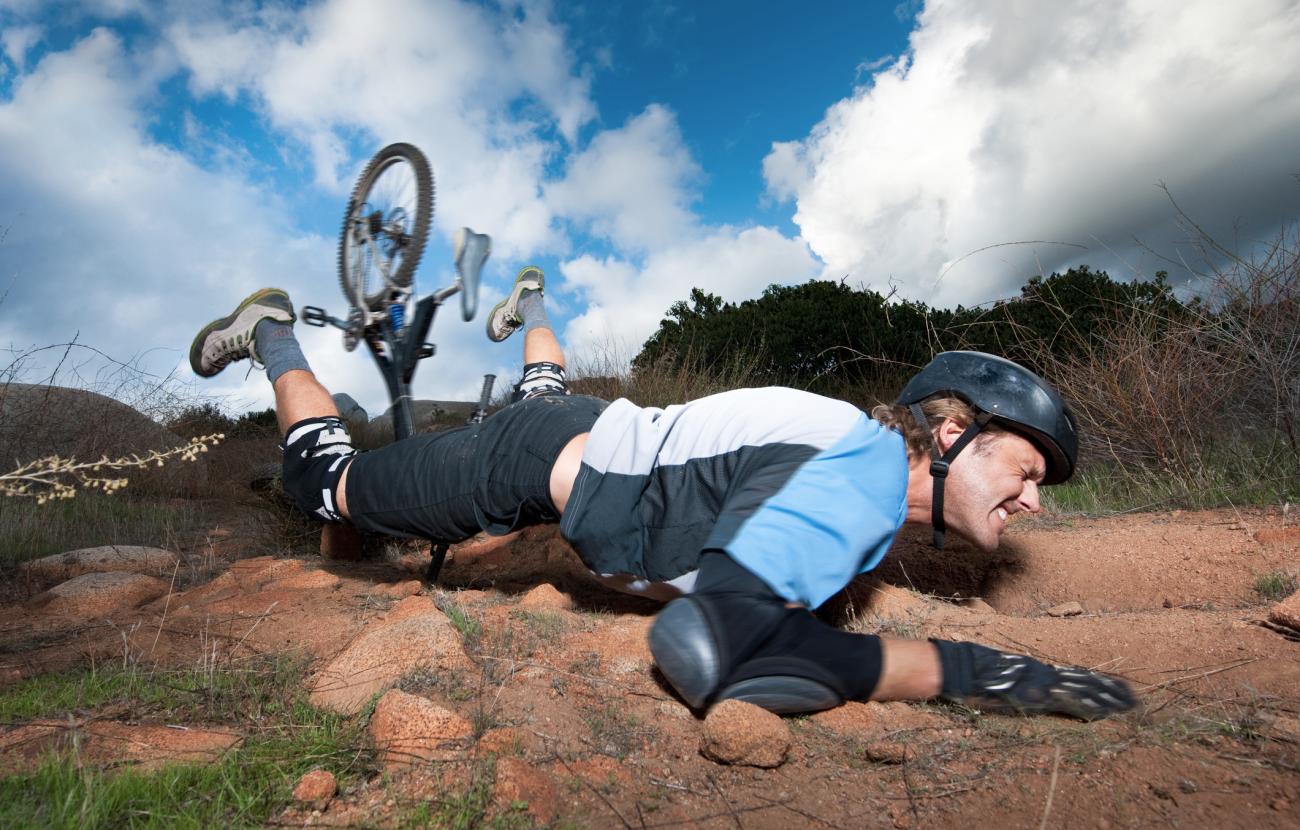
Researchers encourage collaboration to increase awareness and reduce incidence of spinal cord injury amongst mountain bikers.
New Vancouver Coastal Health Research Institute (VCHRI)-led research reveals an alarming number of people suffering spinal cord injuries while mountain biking, often leading to permanent and life-altering paralysis.
The findings, recently published in Neurotrauma Reports, show that 58 people in B.C. sustained a spinal cord injury while mountain biking between 2008 and 2022. In the same 14-year period, there were only three such injuries from ice hockey, and more recently, mountain biking-related injuries in the province have been seven times higher than those from skiing and snowboarding.
“These are devastating injuries. There’s nothing quite as excruciating as having to tell a patient that they may never walk again,” says study senior author Dr. Brian Kwon, a VCHRI researcher and director of the International Collaboration on Repair Discoveries (ICORD).

The analysis of data from the Rick Hansen Spinal Cord Injury Registry shows that the vast majority of people injured were healthy young men. The majority were wearing helmets, while 9.1 per cent wore both helmets and body protection. Only 4.5 per cent wore no protective equipment at all.
“It’s important for people to be aware that these injuries can happen to anyone, regardless of a rider’s experience or the difficulty of a trail,” notes Kwon. “Helmets and safety gear are absolutely necessary, but they don’t completely eliminate risk, so everyone needs to be informed and vigilant.”
Extreme sports associated with high risk for life-altering injuries
With the spinal cord responsible for sending and receiving signals between the brain and the rest of the body, an injury can cause permanent changes in strength, feeling and function below the affected area. Severe cases, known as a motor complete spinal cord injury, result in complete paralysis below the injury site.
Of the 58 injuries recorded in the study, 27 were motor complete spinal cord injuries. This includes 14 people who experienced tetraplegia/quadriplegia (affecting arms and legs) and 13 people who experienced paraplegia (affecting legs). The other 31 people sustained an incomplete spinal cord injury, in which they maintained at least some level of motor function.
“With mountain biking growing in popularity, we hope these findings will prompt more awareness and initiate a discussion around how we can improve safety.”
In addition to the significant toll on patients and families, the researchers estimate that the injuries will collectively cost B.C. $195.4 million, including lifetime health care and rehabilitation costs, patient expenses, and other economic costs such as loss of productivity.
Kwon says more research is needed to understand how such injuries can be prevented. In the meantime, he hopes the study will encourage discussions and collaboration between health professionals, mountain resorts and the mountain biking community.
“There are a lot of factors to consider including how we assess and communicate risk, the importance of rider education, the role that personal safety equipment can play, and how we can safely design trails and resorts,” he adds. “My hope is that all parties can come together to have those important discussions. We all have a shared interest in preventing these catastrophic injuries from occurring.”
For the full release, please visit the UBC News website.


